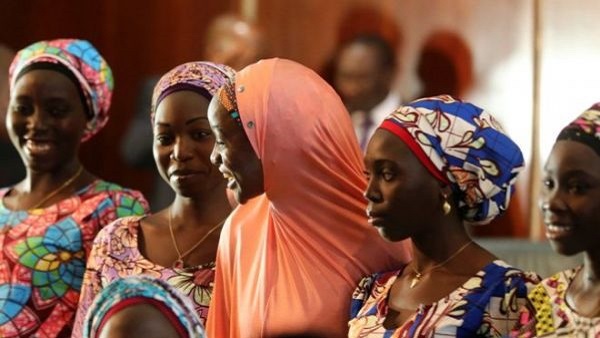Failing to improve the lives of girls and women trapped in poverty and domestic drudgery in northeast Nigeria could drive them into the ranks of extremist groups, analysts said on Monday.
Many girls and women have been abducted by the jihadist group Boko Haram and used as cooks, sex slaves, and even suicide bombers, according to rights groups including Amnesty International.
Yet some women in the mainly Muslim northeast, frustrated by poverty, gender discrimination and deep-rooted patriarchy, have chosen to join Boko Haram voluntarily in the hope of a better life, an International Crisis Group (ICG) report said.
“For some women trapped in domestic life, Boko Haram offers an escape,” Rinaldo Depagne, West Africa project director for the ICG, told the Thomson Reuters Foundation in Dakar, Senegal.
“But this reflects a huge abyss of desperation among women … and a failure of society in the northeast,” he added.
Rates of child marriage, school enrolment and literacy among girls, and women in positions of power are far worse in the north of Nigeria than the rest of the country, activists say.
But women often take senior positions in Boko Haram. Female members are almost as likely as men to be deployed as fighters, and may outnumber them in some roles such as recruiters and intelligence operatives, researchers said in a study published in October.
Boko Haram militants have killed about 15,000 people and displaced some 2.6 million in Cameroon, Chad, Niger and Nigeria during a seven-year campaign to carve out an Islamist caliphate.
The army has driven Boko Haram out of much of the territory it held in 2014, but the government and aid agencies must focus on caring for and reintegrating women affected by the insurgency as the country comes back under their control, the ICG said.
Many women uprooted by the conflict and living in camps for the displaced have resorted to selling sex in exchange for food, while those who were married to or raped by the militants are often rejected by their communities.
For those women who chose to join Boko Haram, the power and freedom afforded to them means they are far more difficult than men to de-radicalise and reintegrate into their communities, according to Nigerian psychologist Fatima Akilu.
“Exclusion and abuse of women may undermine military gains and mean that they have same kind of grievances that pushed many to join Boko Haram in the first place,” Depagne said.
“The state and civil society must improve the situation for women affected by Boko Haram, both victims and perpetrators, and ensure they play a role in rebuilding the northeast,” he added.
Source: Reuters



